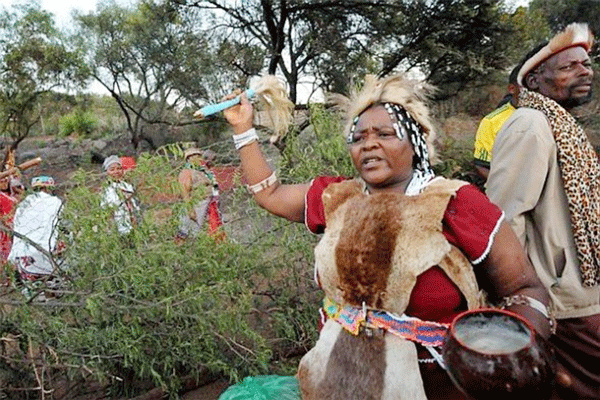
By Leo Muzivoreva
What would you think of a Shona who accepted Chinese ancestors as his own? We would find it quite interesting and wonder how it came to be. But what of Africans’ acceptance of other gods? Is there no tradition with these gods? Of course, there is tradition with these gods! To accept the Jewish god or the Arab god or the Hindu god and so forth is to valourise (if there’s such a word) those histories above your own. Indeed, it is to honour the names in those myths and stories higher than your own stories, it is to love the language, the places in their stories above your own. Why is Mecca, Rome, or Jerusalem more sacred than Masvingo? Quite simply, it is imperialism not by force of arms, but by force of religion which sometimes comes armed.
Joel Kotkin’s Tribes — a book about people ready for the 21st century — claims that only the Jews, Chinese, Indians, Japanese, and the British are ready. These groups have some commonalities which include strong sense of identity, international network, and a passion for technology. He does not include any African community or ethnic group.
If only we could uphold the ideas of people like Marcus Garvey who believed that Africans were not only capable to fully participate in the drama of History without the influence of whites, perhaps the continent would be in a better position as far as issues of self-belief and even development are concerned.
Samuel Huntington’s The Clash of Civilisations claims that there are six major civilisations: Chinese, Japanese, Orthodox, Hindu, Western and Islamic.
He says each one has a nation that is vanguard, deeply committed to its religion and history. Africa has no such vanguard nation and furthermore Africa is yet to emerge from under the cloaks of its interventionists. Of the 53 (or is it 54 now?) nations, only Benin is more African in terms of religion than any other.
All other African nations are predominantly Christian or Muslim.
Reportedly, about 87% of the Benin population practice African Traditional Religion. However, it is a small nation with limited influence in the continent’s affairs. As such, we cannot expect African Traditional Religion to play a major part in the civilisation of Africa for a long time to come, but we can begin to examine the questions, to raise the issues, and to interrogate our practices.
- Chamisa under fire over US$120K donation
- Mavhunga puts DeMbare into Chibuku quarterfinals
- Pension funds bet on Cabora Bassa oilfields
- Councils defy govt fire tender directive
Keep Reading
Let me explore African Traditional Religion with you to provide some common understanding.
In the first place it is important we call African Traditional Religion everywhere by a common acronym ATR. This means that Akan, Yoruba, Edo, Igbo, Xhosa, Zulu, Ndebele and the Shona are the same religion with different branches. Just as Christians may be Baptists, Methodist and Catholics, and just as Muslims may be Mourrides, Sunni or Shi’ites. There is no difference in speaking of ATR as one religion and speaking of Christianity or Islam as other religions.
I believe that African Traditional Religion is as old as civilisation, indeed, it is much older than either Christianity or Islam. The major characteristics of ATR are found in all of the traditions from East to West and North to South. The fact that we have misunderstood the legacy is not the fault of those who left it; it is our fault for preferring the oppressors’ legacy over that of our own ancestors.
l Leo Muzivoreva is an International Relations graduate from Midlands State University. He is currently based in South Africa where he does copywriting for What’s On in Cape Town, a digital events listing website. He also has a dedicated column in the Nigerian owned Writers Space Africa e-magazine. He recently won the Zim Blog Award for The Best Politics and Social Issues category.











